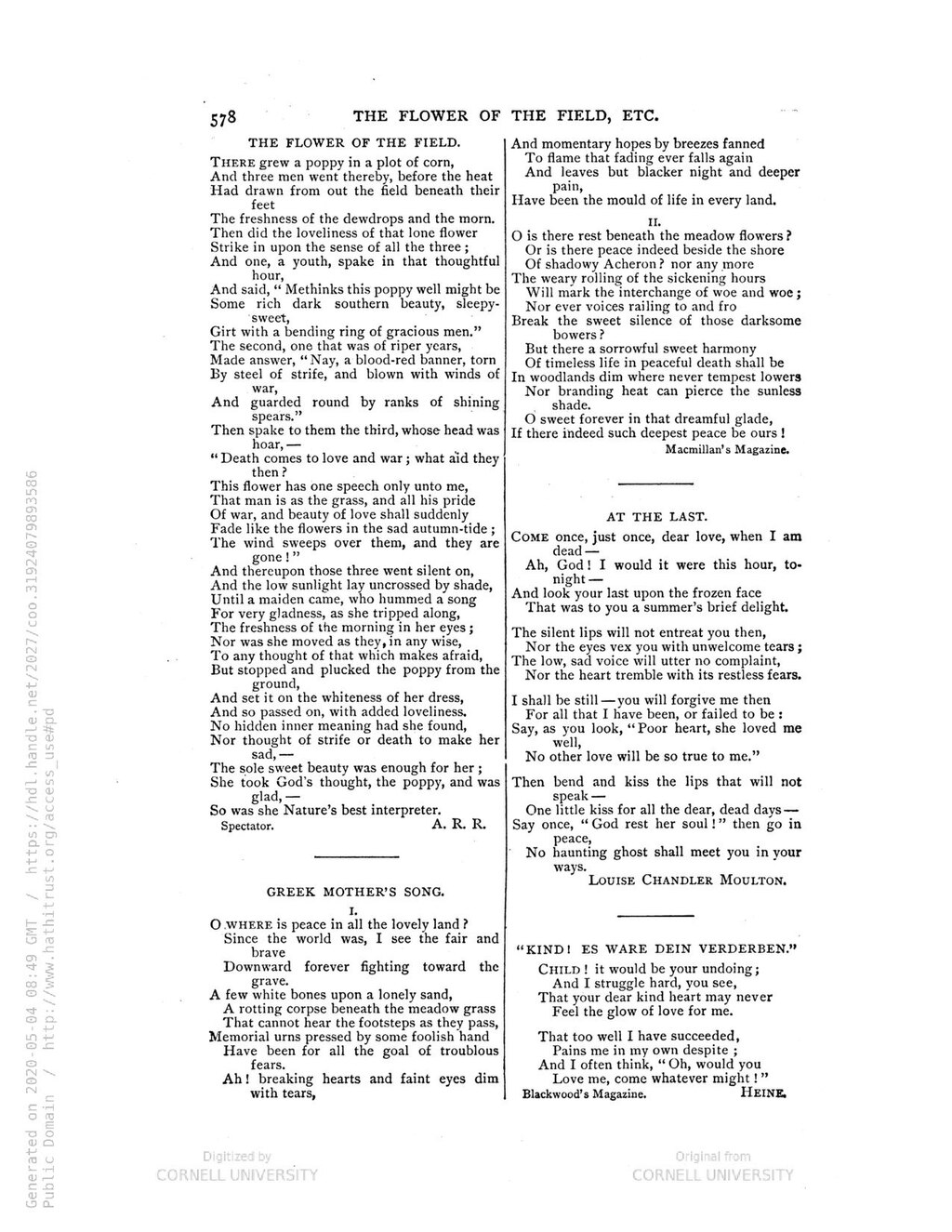There grew a poppy in a plot of corn,
And three men went thereby, before the heat
Had drawn from out the field beneath their feet
The freshness of the dewdrops and the morn.
Then did the loveliness of that lone flower
Strike in upon the sense of all the three;
And one, a youth, spake in that thoughtful hour,
And said, "Methinks this poppy well might be
Some rich dark southern beauty, sleepy-sweet
Girt with a bending ring of gracious men."
The second, one that was of riper years,
Made answer, "Nay, a blood-red banner, torn
By steel of strife, and blown with winds of war,
And guarded round by ranks of shining spears."
Then spake to them the third, whose head was hoar, —
"Death comes to love and war; what aid they then?
This flower has one speech only unto me,
That man is as the grass, and all his pride
Of war, and beauty of love shall suddenly
Fade like the flowers in the sad autumn-tide;
The wind sweeps over them, and they are gone!"
And thereupon those three went silent on,
And the low sunlight lay uncrossed by shade,
Until a maiden came, who hummed a song
For very gladness, as she tripped along,
The freshness of the morning in her eyes;
Nor was she moved as they, in any wise,
To any thought of that which makes afraid,
But stopped and plucked the poppy from the ground,
And set it on the whiteness of her dress,
And so passed on, with added loveliness.
No hidden inner meaning had she found,
Nor thought of strife or death to make her sad, —
The sole sweet beauty was enough for her;
She took God's thought, the poppy, and was glad, —
So was she Nature's best interpreter.
